The Independent's journalism is supported by our readers. When you purchase through links on our site, we may earn commission.
33 business books every professional should read before turning 30
They include career guides, business memoirs, and academic research on how to maximize your time and network
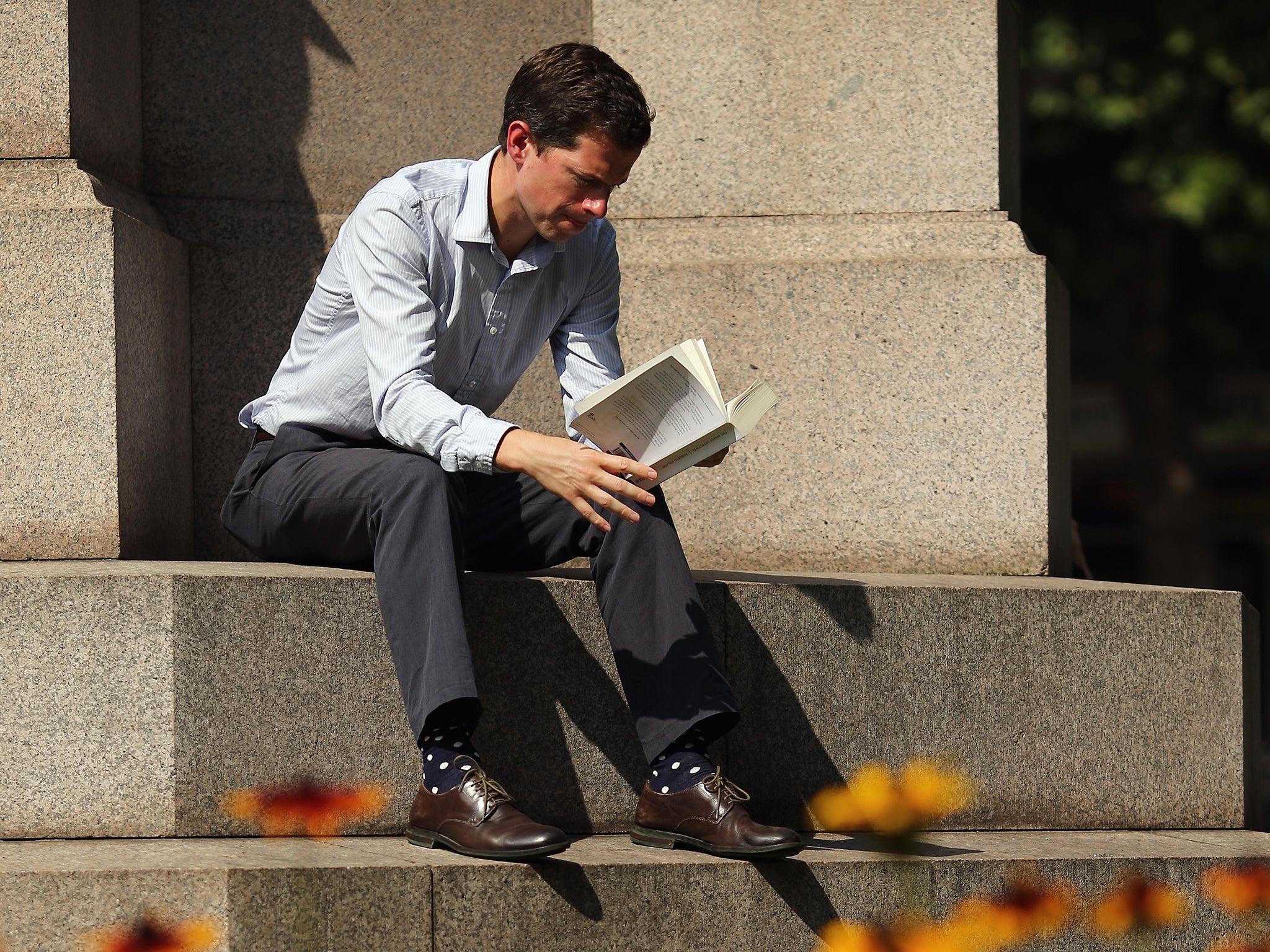
Your support helps us to tell the story
From reproductive rights to climate change to Big Tech, The Independent is on the ground when the story is developing. Whether it's investigating the financials of Elon Musk's pro-Trump PAC or producing our latest documentary, 'The A Word', which shines a light on the American women fighting for reproductive rights, we know how important it is to parse out the facts from the messaging.
At such a critical moment in US history, we need reporters on the ground. Your donation allows us to keep sending journalists to speak to both sides of the story.
The Independent is trusted by Americans across the entire political spectrum. And unlike many other quality news outlets, we choose not to lock Americans out of our reporting and analysis with paywalls. We believe quality journalism should be available to everyone, paid for by those who can afford it.
Your support makes all the difference.Your 20s are the time when you lay the foundation for your career and finances, which means there's plenty to learn along the way.
To help you figure out how to navigate the professional world and set yourself on the right trajectory, we've rounded up some of our favorite business books.
They include career guides, business memoirs, and academic research on how to maximize your time and network.
Here are the business books we think every professional should read before turning 30.
Drake Baer contributed to this post.
'So Good They Can't Ignore You' by Cal Newport
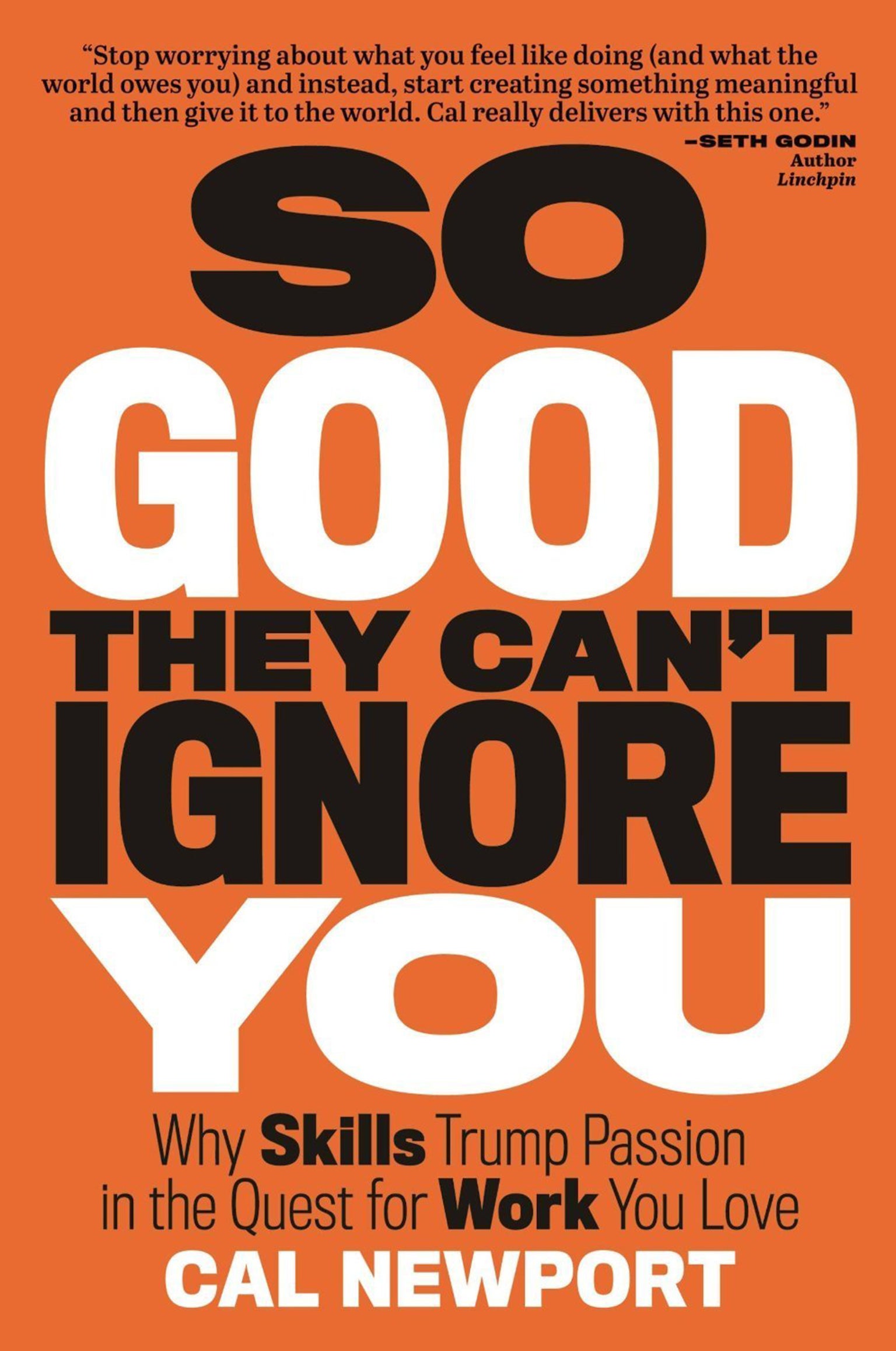
Some of the most common advice you'll hear when you're starting out is that if you pursue your passion, the money will follow.
But there's a big caveat to that, arguesNewport, an author and professor. For most people, he says mastery of a certain skill can lead to finding your passion, since it can open new doors and allow you to progress in your career.
He's not suggesting you give up on your dreams. Rather, ensure that you pair them with a dose of reality and make yourself valuable in the marketplace.
'The Black Swan' by Nassim Taleb
People love the illusion of certainty provided by predictions.
In "The Black Swan," investor-philosopher Taleb diagnoses the way people misguidedly lean on prediction as a way of moving through the world, and reveals how the most structured of systems are the most vulnerable to collapse — like the financial system in 2007.
It's rare to find a book that will change the way you think about the world. This is one such book.
'Lean In' by Sheryl Sandberg
Regardless of whether you agree with Sandberg's theories on gender and society, "Lean In" is a must-read for anyone looking to join the conversation around women and leadership.
In the book, she combines compelling research with moving personal stories to examine how women can sometimes unintentionally undermine their professional progress. Moreover, she offers guidance for women and men looking to promote women's career success.
It's a work that will make readers of any gender question their assumptions about what it really takes to succeed — and be satisfied — at work.
'The Alliance' by Reid Hoffman, Ben Casnocha, and Chris Yeh

Hoffman, the billionaire cofounder of LinkedIn, is rethinking the relationship between managers and employees.
In "The Alliance," he and his co-authors argue that we're long past the age of spending an entire career at a single company. But, they say, our workplaces haven't adapted to the change.
They explain that by establishing an alliance between the company and its employees through "tours of duty," tailored to what the employee wants to get from his or her time at a company, it can "invest in the long-term future without sacrificing adaptability," much the way a dominant professional sports team operates.
'Give and Take' by Adam Grant
Something in our culture tells us we need to be manipulative and backstabbing to grow professionally.
But in "Give and Take," Grant, a Wharton organizational psychologist, outlines why that view is dead wrong. The research indicates that people who create the most value for others are the ones who end up on the top of their fields. And Grant shows you how.
'Zero to One' by Peter Thiel
Today's 20-somethings live in a world where startups turn young entrepreneurs into billionaires and tech founders have replaced Wall Street hotshots as what Tom Wolfe called "Masters of the Universe."
Thiel, a billionaire investor and entrepreneur, pulls back the curtain on this world. It's an enjoyable and concise guide to how game-changing businesses are built and managed.
'#GirlBoss' by Sophia Amoruso
Amoruso, founder of online retailer Nasty Gal, isn't afraid to get personal.
In "#GirlBoss," she shares stories from her wayward youth, including stealing and dumpster diving, and how it paved the way for her tremendous success.
The book is chock full of practical advice that will inspire you to follow your passion and forge your own professional path. The bottom line? It won't be easy, but it will definitely be worth it.
'How to Win Friends & Influence People' by Dale Carnegie
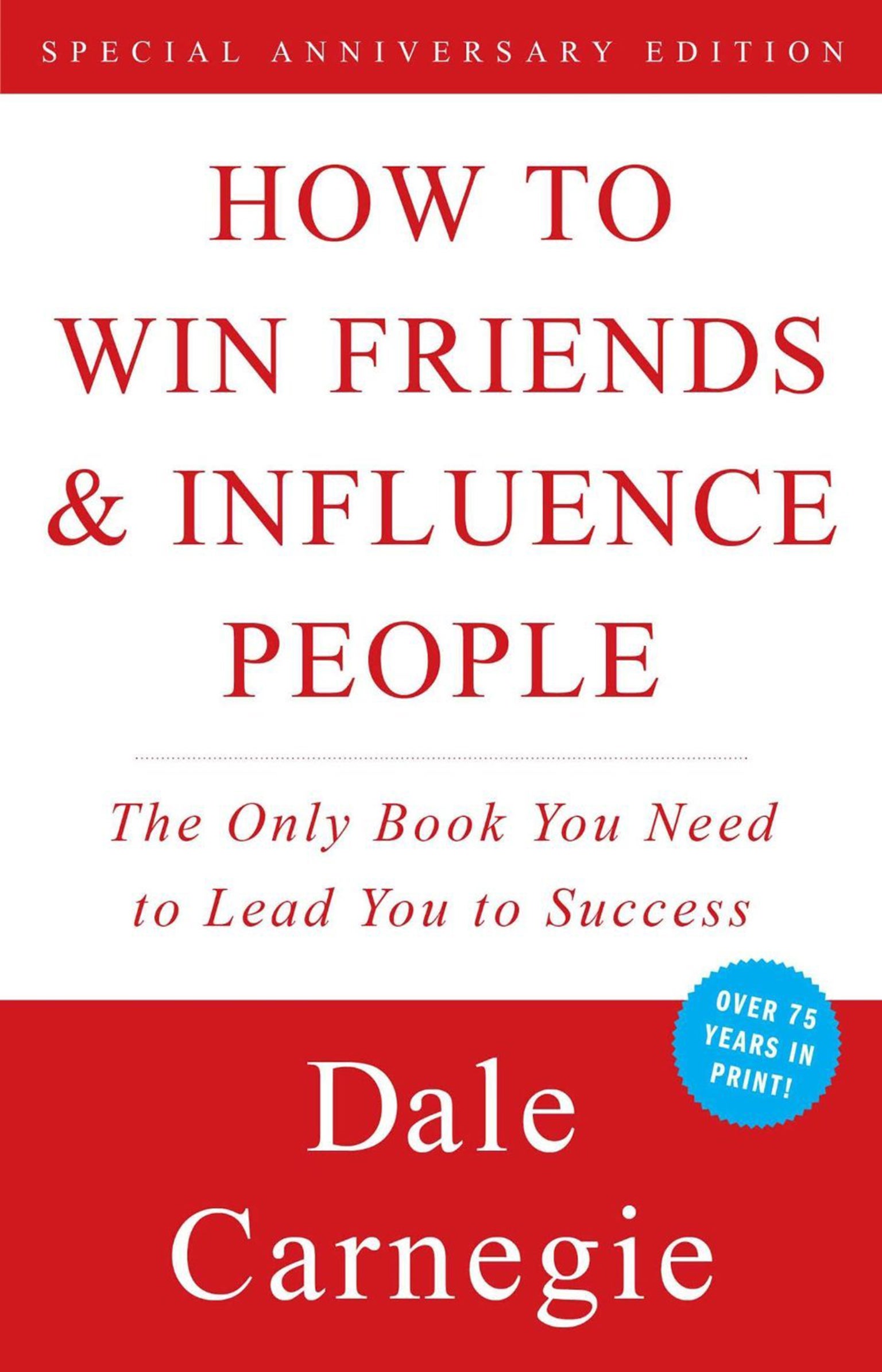
"How to Win Friends & Influence People" has remained a bestselling book since the Great Depression for its timeless wisdom.
Carnegie's book, a favorite of legendary investor Warren Buffett's, is more focused on the psychology behind daily interactions and how to analyze human behavior to emerge as a leader and influencer.
Carnegie's language and references can be charmingly dated, but the core lessons on how to overcome conflict and inspire people to open up to you are just as valuable today as they were decades ago.
'Drive' by Dan Pink
Pink is the bestselling author of some of the past decade's most popular and insightful career guides.
His 2011 book "Drive" argues that the typical rewards-based approach to motivating yourself is insufficient, and instead needs to tap into the values of autonomy, mastery, and purpose.
'Strengths Finder 2.0' by Tom Rath
The philosophy behind "StrengthsFinder 2.0" is that we should spend less time focusing on our flaws and weaknesses and more time focusing on what we do well.
Based on a 2001 book published by Gallup, this second edition features a strengths assessment as well as techniques for putting those strengths into action.
As you consider what career your personality and skill set are best suited for, this book will help you find your professional niche and figure out how you can best contribute to society.
'Friend and Foe' by Adam Galinsky and Maurice Schweitzer
Success in the workplace is ultimately about understanding the psychology behind human interaction. There are few better places to start than "Friend and Foe," in which two professors make the case that business relationships are about competition andcooperation — and knowing how to balance the two.
The book takes scientific research and turns it into practical tricks you can apply in your daily life. Readers learn how to gain powerand wield it effectively, how to build trustamong peers and clients, and how to negotiate and get what you want.
'The Power of Habit' by Charles Duhigg
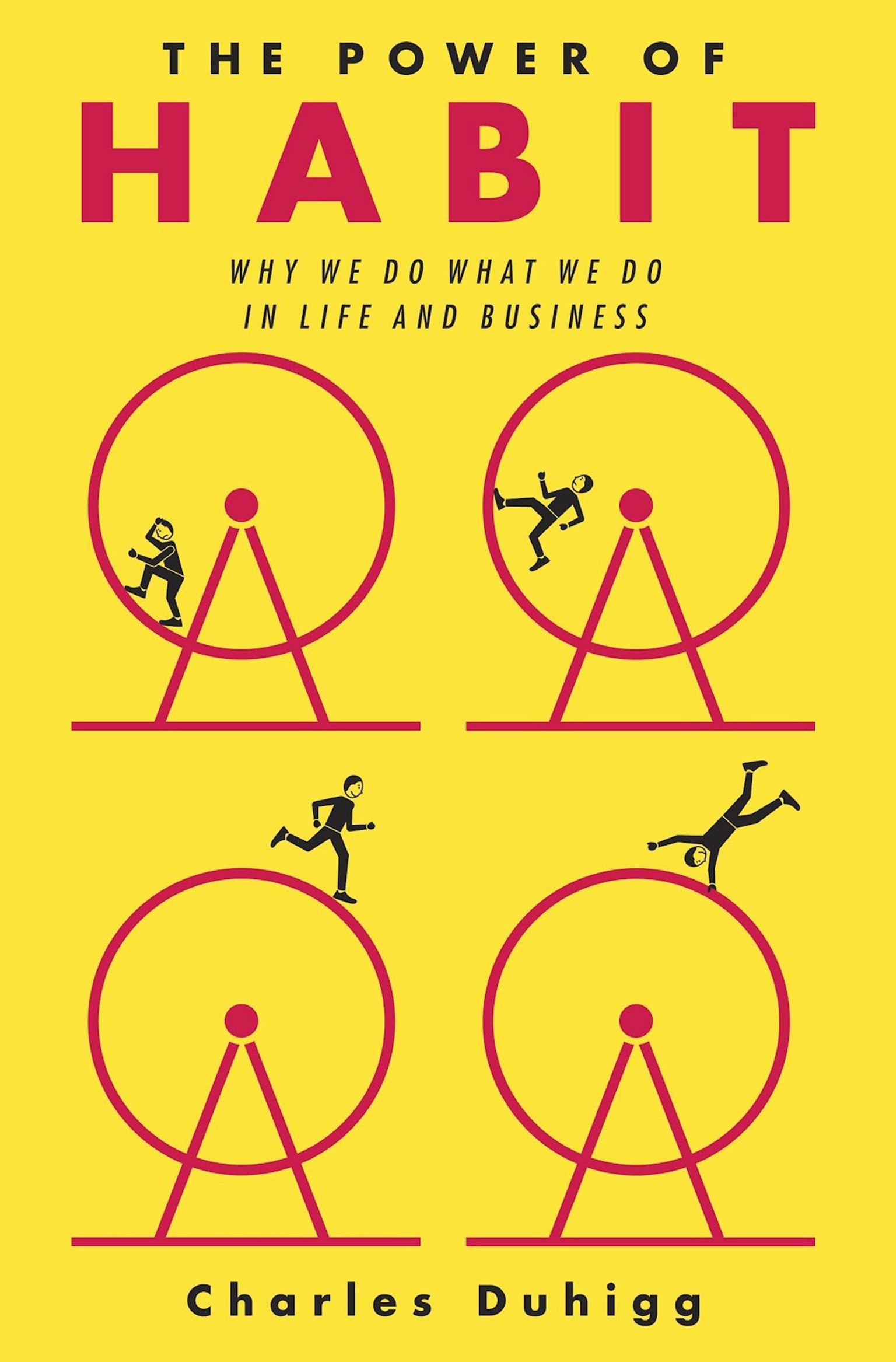
While a book about the science of habit change might sound like it'll put you to sleep, "The Power of Habit" is anything but.
Instead, it's a useful and entertaining book for young professionals looking to set themselves up for a lifetime of health and happiness.
Duhigg, an investigative reporter for The New York Times, explains how the road to success — whether that means quitting smoking or procrastinating — is paved with tiny behavior tweaks you can implement today.
'Getting Things Done' by David Allen
Thirteen years after its first publication, productivity guru Allen released the second edition of "Getting Things Done."
The book is a must-read for anyone relatively new in his or her career because it teaches you the basics of time management, at work and at home. The idea is to come up with an organizing system for daily to-dos so that you free up mental space for focusing on big-picture goals.
Case in point: the "two-minute rule" to keep an overflowing inbox in control.
'Linchpin' by Seth Godin
Godin is a serial entrepreneur, marketing expert, and the successful author of 22 books.
His 2010 book "Linchpin" was his fastest-selling book yet. It's a guide to becoming a linchpin at your company — that is, how to differentiate yourself from other "cogs in the machine" to become truly indispensable.
'Unfinished Business' by Anne-Marie Slaughter
When it comes to juggling work and family, there are no easy answers — and the sooner you realize that, the less stressed and frustrated you'll be later in life.
"Unfinished Business," a follow-up to Slaughter's 2012 article in The Atlantic, "Why Women Still Can't Have It All," makes the case that no one can really have it all today. Slaughter, the former director of policy planning for the US State Department under Hillary Clinton, makes the case for policy and cultural changes that will lay the ground for gender equality and help all workers lead more meaningful lives.
Proposals for change are juxtaposed with anecdotes from Slaughter's own life, in particular the conflict she faced between pursuing a high-octane career in foreign policy and taking care of her family. It's an incredibly thought-provoking read and a helpful guide to setting yourself up for success at work and at home.
'Never Eat Alone' by Keith Ferrazzi
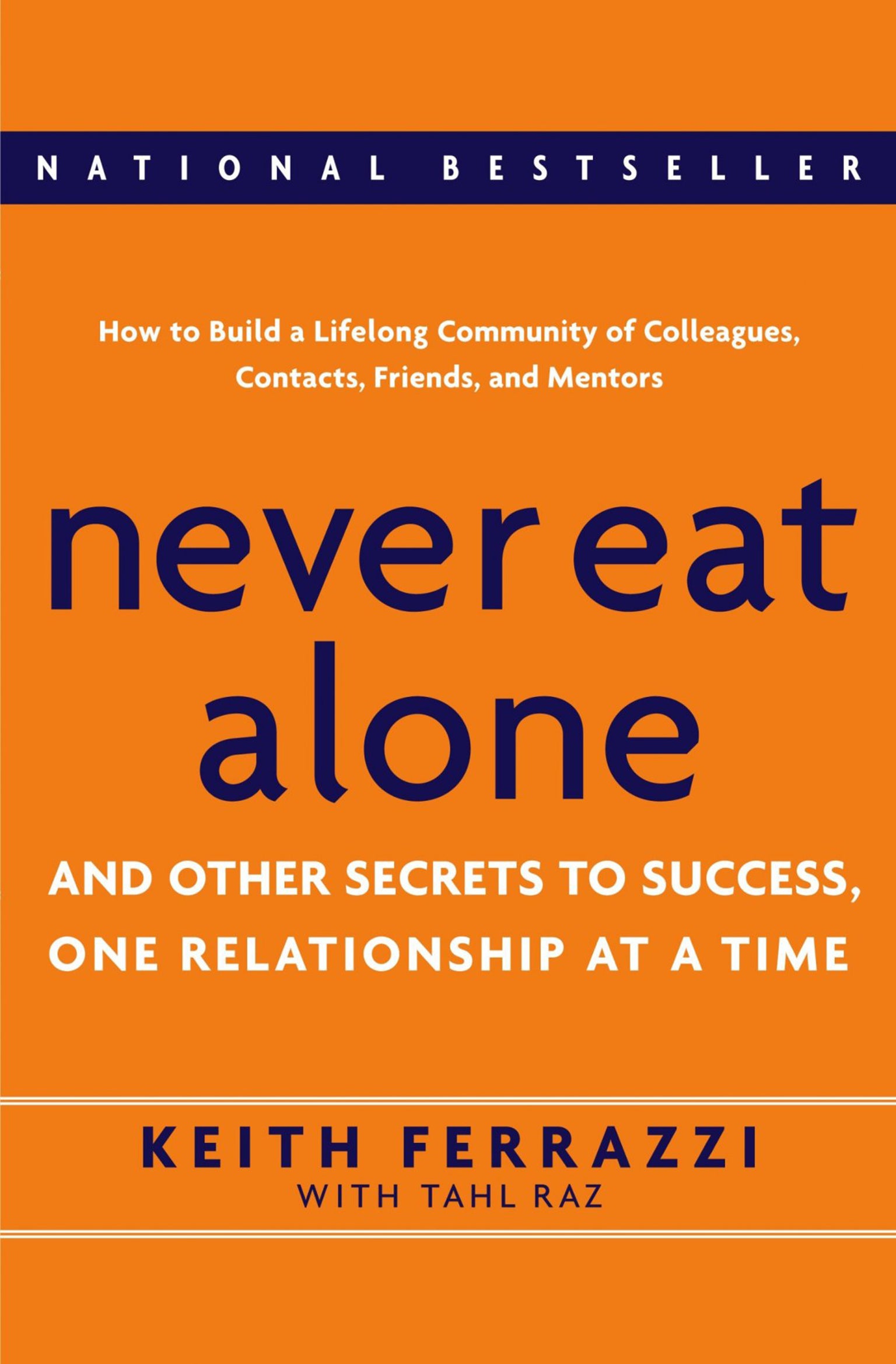
Ferrazzi attributes much of his professional success to the personal relationships he's forged and diligently maintained.
Years before he attended Yale or Harvard Business School, and before he was selected as one of Crain's 40 under 40, Ferrazzi grew up in a small town, the son of a steelworker and a housekeeper.
In the book, Ferrazzi lays out the easy-to-follow strategies he used as a young professional to reach out to people he admired, and you can use them to start becoming an effective networker.
'Power' by Jeffrey Pfeffer
Most leadership books are warmly inspirational, but Pfeffer is a Stanford Business School professor who has made it part of his mission to push back against feel-good philosophies he considers more idealistic than practical.
His 2010 book is a study of power, and how some of the world's most influential people use tactics like acting and bravado to enhance others' perception of them.
'The 4-Hour Workweek' by Tim Ferriss
Ferriss' first book has sold well over a million copies worldwide since it was published in 2007, establishing Ferriss as a premier "life hacker."
The title, not meant to be taken literally, reflects Ferriss' goal of finding the workflows and tricks like "fear setting" that can maximize your efficiency and make the approach to your professional and personal lives as effective as possible.
'Mindset' by Carol Dweck
According to Dweck, a Stanford University psychologist, the key driver of success in our personal and professional lives is the belief that we can succeed.
In the book, Dweck describes research that illuminates the difference between a "fixed" mindset (believing your talents and abilities are innate) and a "growth" mindset (believing you can learn and improve).
By adopting the latter mentality in your 20s, you can set yourself up for decades of achievement, no matter what field you find yourself in.
'Quiet' by Susan Cain

If you're naturally introverted, don't feel like you need to fundamentally change who you are if you want to rise up the corporate ladder.
Cain wrote "Quiet," the bestselling defense of introverts, because she was tired of seeingintroverts treated as "second-class citizens."
Whether you're an extrovert or introvert, Cain's research will help dispel the socially ingrained idea that to be successful you need to be loud, outgoing, and aggressively competitive.
'Predictably Irrational' by Dan Ariely
Whether you're hoping to launch a company or corporate career, you'll need to understand the complexities of human behavior.
And there's no better place to start than this book by one of the world's leading behavioral economists.
In "Predictably Irrational," Ariely presents scientific research that helps explain everything from why we procrastinate to how we determine what a product is worth.
'The Power Broker' by Robert Caro
Not understanding how powerful people work makes you vulnerable to their will.
This is why "The Power Broker," Caro's immense biography of the New York urban planner Robert Moses, is so essential.
If you want to see Machiavellian principles in action, read this.
'7 Habits of Highly Effective People' by Stephen R. Covey
Since its publication in 1989, this book has remained a business and self-help classic.
Whether you're an aspiring politician or CEO, it will inspire and empower you to achieve your professional goals.
Every chapter explores a crucial habit, including finding synergy and being proactive. Each one is geared toward helping you become a more effective and compassionate leader and team member.
'The Hard Thing About Hard Things' by Ben Horowitz
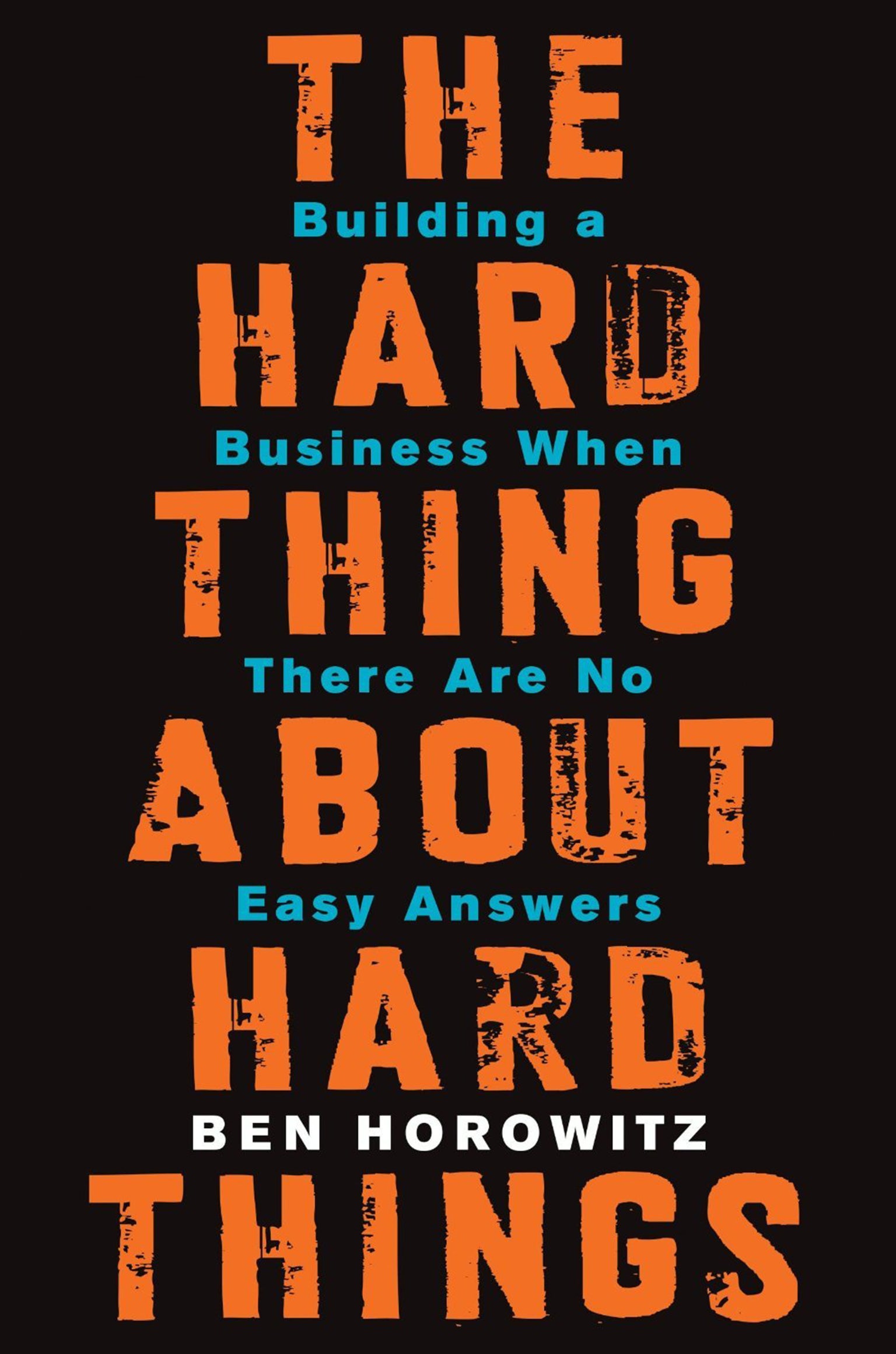
For those of you who can become exhausted by the dramatic optimism in some entrepreneur's biographies, "The Hard Things About Hard Things" is a welcome change.
Horowitz is the cofounder of renowned venture capital firm Andreesen Horowitz (whose investments include Business Insider), and his book drives home that there is no magical recipe to success as some would have you believe; the only way to make it as an entrepreneur is through sheer determination and paying attention to what worked and what didn't.
'How Will You Measure Your Life?' by Clayton Christensen
There's a mystery at the center: When Christensen graduated from Harvard Business School in 1979, he and his classmates were on top of the world. But by their 25-year reunion, many of his peers were in crisis — whether it be private, in the case of estranged children, or public, in the case of Jeffrey Skilling, the head of Enron.
The book investigates why some of those incredibly privileged people leave their lives in ruins while others flourish.
'Creativity, Inc.' by Ed Catmull
As you develop your career, you may find that your job has killed the creativity that you'd previously held precious.
Pixar cofounder Catmull tells the story of building the computer animation giant, arguing along the way that everyone is inherently creative, but most people stymie their creativity because of a variety of social forces and personal inhibitions.
Facebook CEO Mark Zuckerberg recently selected it for his book club because he wants Catmull's story to inspire people to let their creativity free, whether you're a programmer or a banker.
'The Intelligent Investor' by Benjamin Graham
Billionaire investor Bill Ackman is one of countless Wall Street power players who cite "The Intelligent Investor" as a book that changed their life.
Written by Warren Buffett's mentor and published in 1949, it's an in-depth introduction to value investing.
Even if the industry you work in is far removed from finance, Graham's advice will help you make the most of your money in the long term.
'Crossing the Unknown Sea' by David Whyte
There's relatively little quality writing about the place of work in our lives.
That's why Whyte's "Crossing the Unknown Sea: Work as a Pilgrimage of Identity" is like an oasis.
In it, Whyte, a British poet now living in the US, frames a career not as a quarry to be captured but as an on-going conversation one has with the world and one's self.
'Steve Jobs' by Walter Isaacson

The late Apple cofounder and CEO Steve Jobs has become a mythical figure who still looms over Silicon Valley.
Isaacson's biography is the best way to understand what made Jobs tick, and offers a look at the two most notable sides of the man: the powerfully inspirational visionary and the ruthless and difficult businessman.
Jobs' story of being cast away from the company he created, only to return to transform it into one of the world's most successful companies, shows the value of rebounding from one's mistakes and tapping into unyielding determination.
'Act Like a Leader, Think Like a Leader' by Herminia Ibarra
The early stages of your career are the ideal time to develop your personal definition of leadership.
And "Act Like a Leader" will help you do that. Ibarra, a business professor and leadership expert, offers advice on everything from expanding your professional network to being open to new ideas. Her basic philosophy is that there is no one way to lead — it all comes down to what's working well for you.
The opposite of a traditional guidebook, the book will inspire you to achieve success and satisfaction in a fast-evolving workplace.
'Choose Yourself' by James Altucher
Altucher is a hedge fund manager, entrepreneur, and outspoken writer (as well as a contributor to Business Insider). In his signature fearless and deeply personal voice, he writes "Choose Yourself" as a guide to professional liberation.
You may have no inclination to quit your day job and start a business, but Altucher's message is that even those who work for someone else need to be more self-reliant than at any other point in history.
Through his own story and the stories of other entrepreneurs, Altucher illustrates why the only way to achieve success on a large scale is by choosing yourself.
'The Tipping Point' by Malcolm Gladwell
Today's 20-somethings have grown up with social media, but they're tapping into a timeless form of communication.
Gladwell is a master of using data and reporting to illustrate society's mechanics.
His debut book, "The Tipping Point," came out 15 years ago, but its insights into how and why people distribute ideas and information until they become an "epidemic" is just as relevant and interesting today, especially since the idea of "going viral" continues to fascinate us.
'Flow' by Mihaly Csikszentmihalyi

After growing up hearing so much about the pursuit of happiness, one of the weirdnesses of adulthood is the discovery that so little empirical research has gone into uncovering its mechanics.
Thus the necessity of Csikszentmihalyi, whose "Flow: The Psychology of Optimal Experience" is the distillation of decades of research into how happiness works.
For Csikszentmihalyi, happiness is a product of a life lived at its frontiers, where one is constantly expanding and exploring the sense of self.
Read more:
• The 'third wave' of the financial crisis in 2 charts
• What happens when your naked photos are hacked
• Elon Musk thinking much bigger than cars and rockets
Read the original article on Business Insider UK. © 2015. Follow Business Insider UK on Twitter.
Join our commenting forum
Join thought-provoking conversations, follow other Independent readers and see their replies
Comments